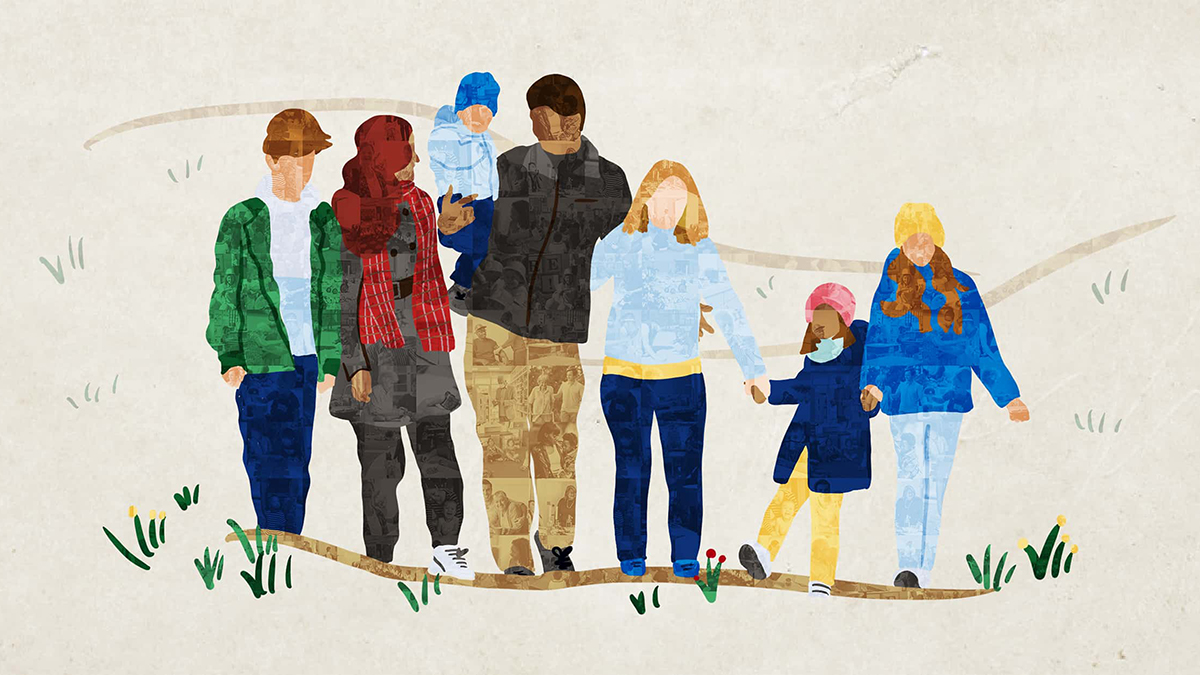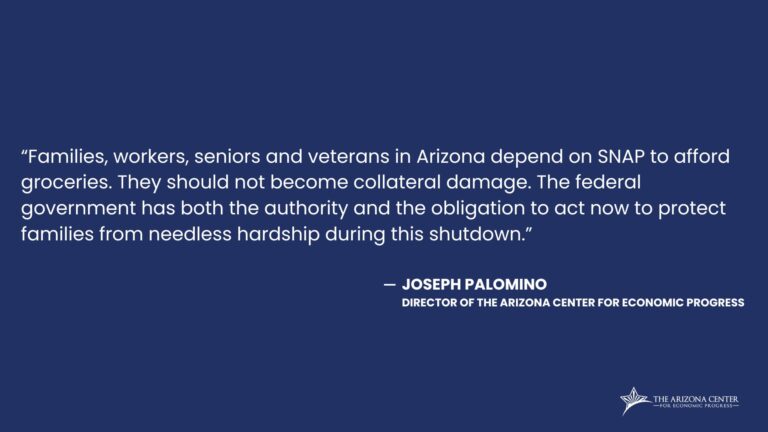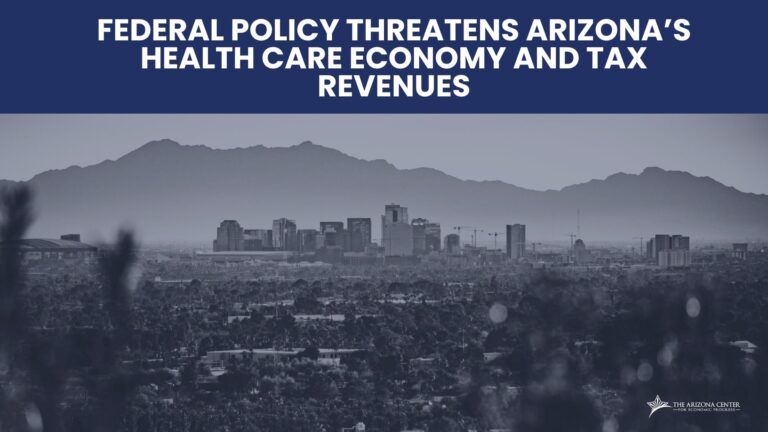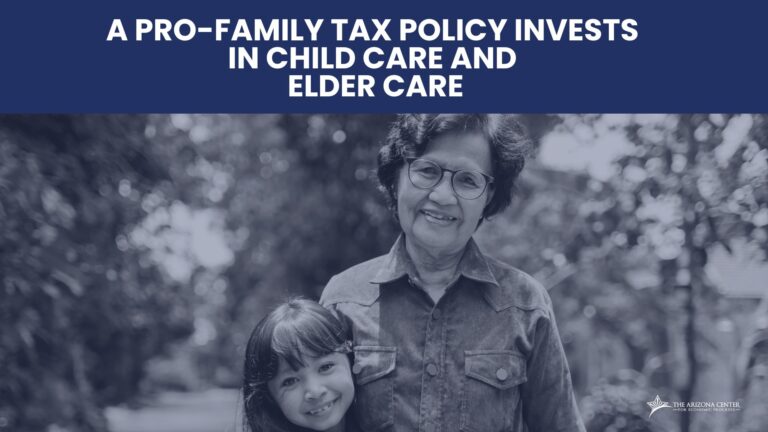
Expanded Child Tax Credit A Major Boost for Arizona’s Families
This post is the first in our online series on the expanded Child Tax Credit – featuring key section(s) of our full report. Click here to view our second entry on how the Child Tax Credit reduces child poverty.
Starting today, families across Arizona will receive the first automatic monthly payment of the newly-expanded federal Child Tax Credit (CTC). Below we summarize the important changes this year, what it means for Arizonans, and how Congress can act to make this a permanent support for children and families.
Changes made possible by the American Rescue Plan Act
When Congress passed the American Rescue Plan Act in March 2021, it included some significant (albeit one-time) changes to the federal CTC. The Child Tax Credit is not particularly new for Arizona families with lower incomes, but this year it is greatly expanded, thanks to these changes:
- The Child Tax Credit is now fully refundable. This means that families with low incomes can now receive the full credit regardless of their level of earnings or personal income tax liability. According to the Center on Budget and Policy Priorities, this change is estimated to benefit 692,000 children in Arizona previously left out of the full credit. This is because the CTC previously excluded nearly all of the lowest-income households from claiming the full credit, including about half of all Black and Latinx children.
- The Child Tax Credit is now larger. The full credit has been increased from $2,000 to $3,600 per child under the age of 6, and to $3,000 for older children. The income limit before the expanded credit phases out is $150,000 for married couples and $112,500 for heads of household.
- The Child Tax Credit now includes 17-year-olds. The credit had previously been available to families with children this age, but they were removed as a part of the 2017 Tax Cuts and Jobs Act.
- The Child Tax Credit will be distributed by automatic monthly payments. This provides the refundable credit immediately, instead of in 2022 when taxes are filed. If families prefer to get the credit as a lump sum next year, they can update this preference with the IRS directly.
How Arizona benefits from an expanded Child Tax Credit
The expanded CTC means a regular source of support for the families that need it most. The families with the lowest incomes will see the biggest boost as a share of their income from the expansion of the credit. In Arizona, estimates suggest that over 70% of the total tax benefits from the CTC expansion will accrue to households making less than $70,000 per year.
For example, the average family in the lowest quintile makes $13,400 per year. For that family, the average increase will be over $4,200, constituting a 32% increase in their income. This income gain, provided monthly, can meaningfully improve a family’s ability to afford their basic needs, and improve their quality of life. It is much more difficult for children to succeed when they face housing instability, food insecurity, or when their parents face daily stress due to limited resources. The CTC alone won’t end economic hardship, but a large boost to income will have a tangible impact.
This is a welcome departure for working families from the approach taken by the Republican-controlled Congress who passed the Tax Cuts and Jobs Act of 2017, which saw the vast majority of benefits go to the wealthiest households and corporations. And unfortunately, tax policies in most states, including Arizona, make it harder for those living in poverty or near poverty to make ends meet as it takes a much greater share of income from middle- and low-income families than from the wealthy. This most recent legislative session, Governor Doug Ducey and Republicans in the Arizona Legislature enacted a flat tax that will underfund public education and exacerbate inequalities that disadvantage lower-income families. The expanded CTC will help counter the regressive nature of state tax policy.
Thanks to the expanded CTC, approximately 1.5 million children in Arizona will benefit in some form (that is 93% of children in the state). About 238,000 children under the age of 18 will be lifted above or closer to the poverty line by the expansion, among one of the greatest measures taken against child poverty.
Congress should make Child Tax Credit expansion permanent
There is no reason for this expansion to be a one-time change. The children and families helped the most through an expansion of the CTC need economic security every year, not just in 2021. A permanent CTC can be a cornerstone policy for ensuring a just and equitable future for families and children. This pandemic-driven recession has laid bare our economic and racial disparities. And unfortunately, tax policies in most states, including Arizona, make it harder for those living in poverty or near poverty to make ends meet. Our state and local tax system takes a much greater share of income from middle- and low-income families than from the wealthy.
Making the CTC permanent is concrete step that Arizona’s congressional delegation can take to directly benefit children and families, rebalance the tax code, and build a people first economy for Arizona.
Resources for families to enroll or update information with the IRS
The IRS and other researchers estimate that approximately 5-10% of children have yet to sign-up to receive the automatic monthly payments from the expanded CTC.



